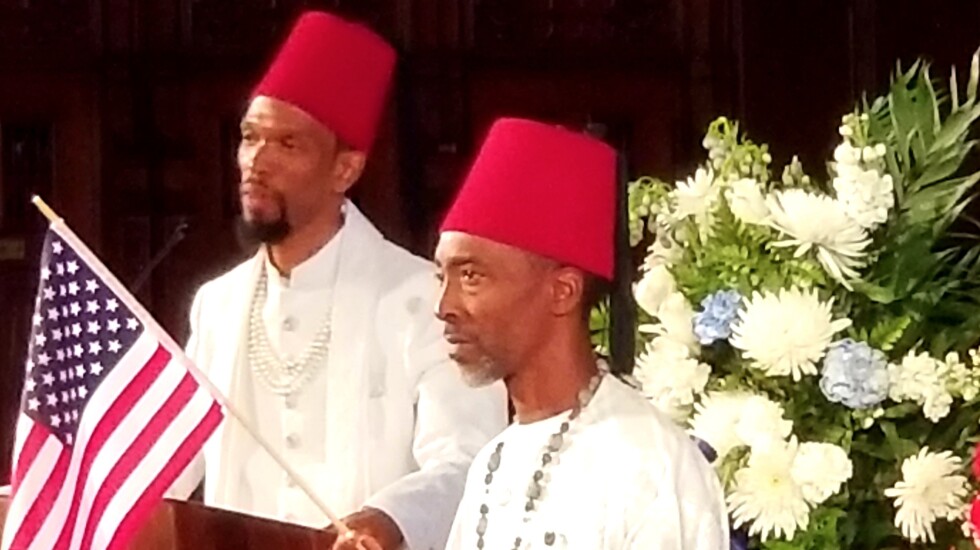Particularly in a world that can be cold, cruel and deadly to brown-skinned boys born on the other side of the tracks.
But a good father can be a son’s compass. Even if fatherhood arrives devoid of a handbook. Even if the elements that can steal a son’s life hover like storm clouds on some sunny days.
And a son can be the light that inspires a father to be a better man. That compels a man to be a better father than his own father. To provide for, produce and protect a son with endless, selfless devotion. To carry him in life and in death. And perhaps beyond.
This is Rodney and Khalil’s story.
Rodney White-EL wanted to give his son a strong name, with purpose and power. He named him after one of the elders who was “like a father” to him at the Nation of Islam, where he was a member at the time.
He chose “Khalil” — meaning friend of Allah. He chose “Tariq” as his middle name — “night star.” “EL” signifies their Moorish American heritage and, for the father, his own transformation, naturally and spiritually, through his Islamic faith.
White-EL spoke his son’s name to him while he was in his mother Regina Howard’s womb.
“Khalil!” he called to him as his son responded with a kick the father could feel. “I can’t wait to meet you. You a little feisty dude.”
On Nov. 9, 2003, Khalil entered their world.
“I didn’t know where to start, what to do. I was nervous, man,” the father says. “I looked at him as my angel. I would never want him to experience what I experienced. I know how hard it was for me.”
White-EL says his own father was a gangster who moved from New Orleans to Chicago and settled on the West Side. He ran policy and owned a liquor store.
White-EL’s mother was a devout Christian who kept her children in church on Sundays. It was kind of a heaven-and-hell situation. As a youngster, White-EL drank his first “forty” — a 40-ounce bottle of malt liquor — with his father. White-El says he ended up battling alcoholism, being ensnared by the streets. He didn’t want that for his son.
He changed his life, motivated by his faith in Allah. By the example of good men like E. Braswell Bey, supreme grand sheik of the Moorish Science Temple of America. And by his love for Khalil.
He quit the streets. Quit drinking and smoking. Devoted himself to work and fatherhood. He doted on Khalil, who was always running, jumping, playful and smart beyond his years. He took his son everywhere. Gave him his first haircut and every other haircut over 18 years.

On Thursday, as one of the final loving acts for his son, White-EL arrived at a South Side mortuary before his son’s funeral visitation and helped adorn his head with a red fez headdress, symbolizing his royal princehood as a Moorish American.
Khalil was fatally gunned down Aug. 23 in a South Side alley soon after starting a new job. No one has been charged.
Friday, hundreds of mourners at the Faith Community of St. Sabina filed past a black open casket adorned with red and white carnations, roses and peace lilies and a banner with Khalil smiling in life.
“Of course, it hurts,” White-EL told mourners. “Of course, we are angry, and, of course, we are determined to get justice for Khalil. If I didn’t have my faith, I would literally lose my mind.”

Standing on the church’s stone steps, mourners shouted, “Khalil!” over and over and over again.
The father, brokenhearted but smiling, released a dove into the sky. A symbol that his son and their love still live.
#JusticeForJelaniDay







